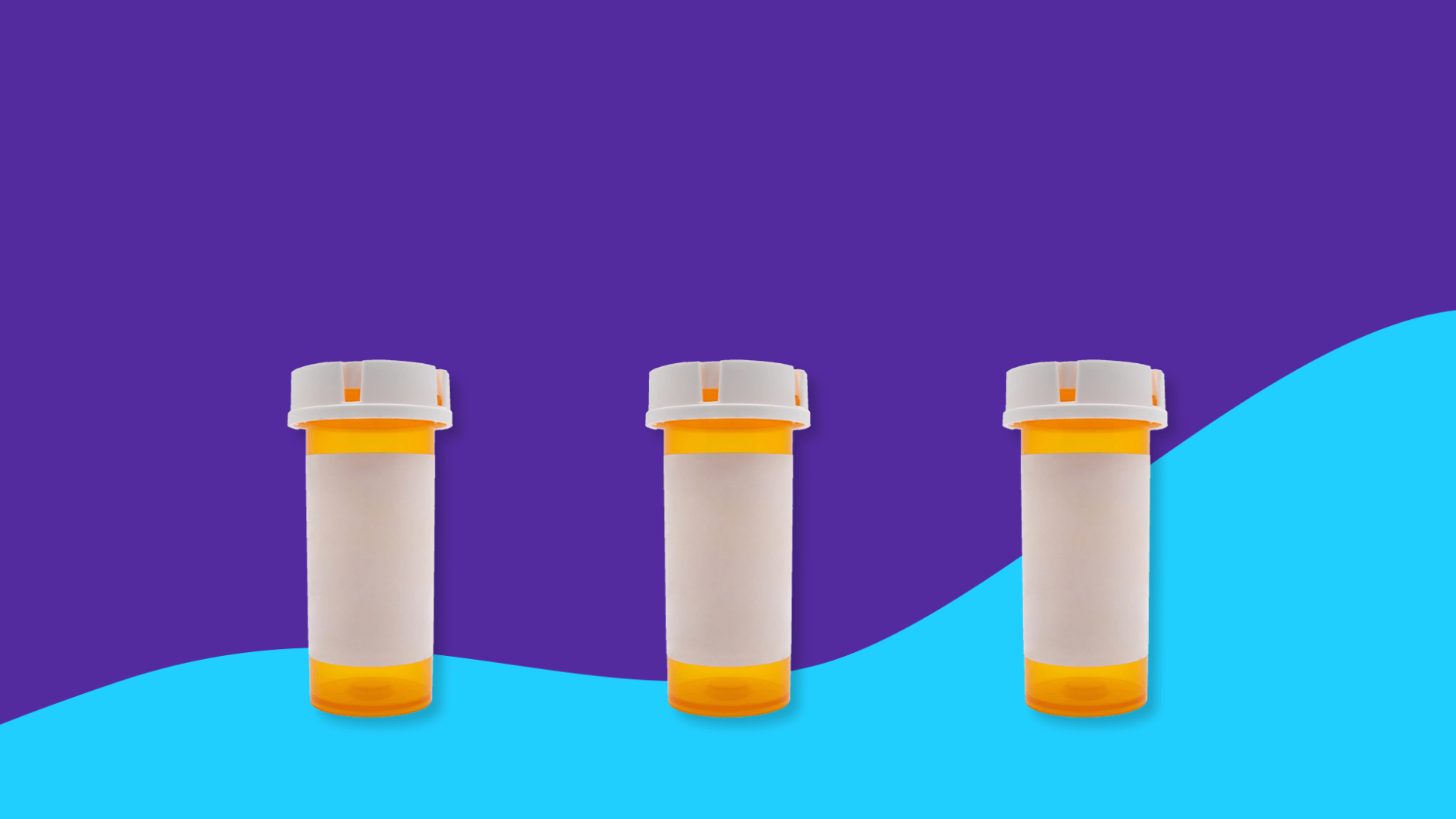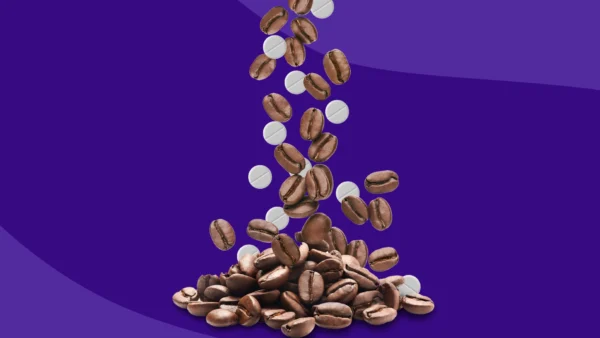Compare Adderall alternatives | Ritalin | Vyvanse | Strattera | Intuniv | Kapvay | Natural alternatives | How to switch meds
Adderall is a prescription drug used to treat attention-deficit/hyperactivity disorder (ADHD) in adults and children 3 years and older. It can also treat narcolepsy in adults and children six years and older. Adderall XR is an extended-release form of Adderall used to treat ADHD symptoms in adults and children six years and older.
Adderall is available as an oral tablet, and Adderall XR is available as an oral capsule. Both medications are available in brand and generic versions.
Adderall and Adderall XR both contain the ingredients amphetamine and dextroamphetamine. Dopamine, (a neurotransmitter) which aids in controlling reward systems and pleasure centers, is increased by Adderall. Adderall is an immediate-release drug and is dosed one to three times daily. Adderall XR is extended release and is usually dosed once daily. Amphetamine and dextroamphetamine are part of a drug class called central nervous system (CNS) stimulants. CNS stimulants help increase focus and alertness and decrease impulsivity. Adderall and Adderall XR are Schedule II controlled substances. This means they have the potential for abuse and dependence.
Sometimes, an individual may seek a different treatment than Adderall or Adderall XR. Recently, there have been nationwide shortages of brand and generic Adderall and Adderall XR. This may prompt patients and healthcare providers to think about an Adderall substitute that is consistently available. Additionally, some patients may not see the desired results and may want to try a different medicine to see if it is more effective. Others may experience side effects that are bothersome or do not go away. Some of the common adverse effects of Adderall and Adderall XR include:
- Appetite and weight loss
- Dry mouth
- Trouble sleeping (insomnia)
- Headache
- Stomach problems: stomach pain, nausea, vomiting, diarrhea, constipation, indigestion
- Mood swings
- Anxiety
- Agitation
- Dizziness
- Nervousness
- Fast heartbeat
- Tiredness
- Weakness
- Loss of interest in sex
- Excess sweating
- Increased blood pressure
- Tooth disorders (clenching, infections)
In some cases, a severe side effect may occur. Serious side effects may include:
- Heart attack
- Stroke
- High blood pressure
- Seizures
- Serotonin syndrome
- Serious or life-threatening allergic or skin reaction
Some patients cannot take Adderall or Adderall XR at all. These drugs have a black box warning. A black box warning is the strongest warning required by the United States Food and Drug Administration (FDA). The warning states that stimulants, including Adderall and Adderall XR (as well as other CNS stimulants), have a high potential for abuse and dependence. Individuals with a history of substance use disorder may not be appropriate candidates for Adderall or Adderall XR. Other individuals that should not take Adderall or Adderall XR include:
- People with an allergy to amphetamine, dextroamphetamine, or similar drugs
- People who have taken a drug in the monoamine oxidase inhibitor (MAOI) class of drugs within 14 days
- Women who are pregnant or breastfeeding
- People with severe kidney problems (this applies to the XR form)
- People with certain heart or heart rhythm conditions
Whatever the reason for a patient seeking an effective Adderall alternative, there are other ADHD medications that can be discussed with a healthcare professional.
What can I take in place of Adderall?
If you are looking for an Adderall alternative, other types of medications are available. The table below compares Adderall and Adderall XR (both in bold) with common alternatives. All the drugs listed are FDA-approved prescription medications. One of these options may be more suitable for certain individuals due to different side effect profiles, dosing schedules, or availability. This article will focus on Adderall alternatives for ADHD.
Compare Adderall alternatives for ADHD |
|||
|---|---|---|---|
| Drug name | Uses | Dosage | Savings options |
| Adderall (dextroamphetamine/ amphetamine) tablet | ADHD
Narcolepsy |
ADHD in adults: Total of 5 to 40 mg by mouth daily divided into 1, 2, or 3 doses
Children 3 years and older: Varies by age |
Adderall coupons |
| Adderall XR (dextroamphetamine/ amphetamine extended-release) capsule | ADHD | Adults: Start at 20 mg by mouth in the morning, may increase to a maximum of 60 mg per day
Children 6 years and older: Varies by age |
Adderall XR coupons |
| Concerta (methylphenidate extended-release) tablet | ADHD | Adults 18 to 65 years old: Start at 18 to 36 mg by mouth daily, may increase to a maximum of 72 mg per day
Children 6 years and older: Varies by age |
Concerta coupons |
| Focalin (dexmethylphenidate) tablet | ADHD | Adults and children 6 years and older: 2.5 to 10 mg by mouth twice daily | Focalin coupons |
| Focalin XR (dexmethylphenidate extended-release) capsule | ADHD | Adults: 10 to 40 mg by mouth once daily in the morning
Children 6 years and older: 5 to 30 mg by mouth once daily in the morning |
Focalin XR coupons |
| Intuniv (guanfacine extended-release) tablet | ADHD | Children and adolescents ages 6 to 17 years old: varies by weight | Intuniv coupons |
| Kapvay (clonidine extended-release) tablet | ADHD | Children and adolescents ages 6 to 17 years old: 0.1 mg to 0.4 mg per day divided into 1 or 2 doses | Kapvay coupons |
| Metadate CD (methylphenidate 30% immediate-release/
70% extended-release) capsule |
ADHD | Children and adolescents ages 6 to 15 years old: 20 to 60 mg by mouth in the morning
(Used off-label for adults) |
Metadate CD coupons |
| Quillivant XR (methylphenidate extended-release) suspension | ADHD | Adults: 20 to 60 mg by mouth in the morning | Quillivant XR coupons |
| Ritalin (methylphenidate) tablet | ADHD
Narcolepsy |
Adults with ADHD: 5 to 15 mg by mouth 2 or 3 times daily
Children 6 years and older with ADHD: dosage depends on weight |
Ritalin coupons |
| Strattera (atomoxetine) capsules | ADHD | Adults: Varies
Children 6 years and older: Varies by weight |
Strattera coupons |
| Vyvanse (lisdexamfetamine) capsule or chewable tablet | ADHD
Moderate to severe binge eating disorder |
ADHD (adults and children 6 years and older): 30 to 70 mg by mouth in the morning | Vyvanse coupons |
Other alternatives to Adderall for ADHD
- Adhansia XR (methylphenidate 20% immediate-release/80% extended-release) capsules
- Adzenys ER (amphetamine extended-release) oral suspension
- Adzenys XR-ODT (amphetamine extended-release) orally disintegrating tablet
- Aptensio XR (methylphenidate 40% immediate-release/60% extended-release) capsules
- Azstarys (serdexmethylphenidate/dexmethylphenidate) capsules
- Cotempla XR-ODT (methylphenidate 25% immediate-release/75% extended-release) orally disintegrating tablets
- Daytrana (methylphenidate) transdermal patches
- Dexedrine (dextroamphetamine extended-release) capsules
- Dyanavel XR (amphetamine extended-release) tablets and oral suspension
- Evekeo (amphetamine) tablet
- Evekeo ODT (amphetamine) orally disintegrating tablet
- Jornay PM (methylphenidate) extended-release capsules
- Metadate ER (methylphenidate) extended-release tablets
- Methylin (methylphenidate) oral solution
- Mydayis (dextroamphetamine/amphetamine extended-release) capsules
- ProCentra (dextroamphetamine) oral solution
- Qelbree (viloxazine extended-release) capsules
- Quillichew ER (methylphenidate 30% immediate-release/70% extended-release) chewable tablets
- Ritalin LA (methylphenidate 50% immediate-release/50% delayed-release) capsules
- Wellbutrin (bupropion; used off-label for ADHD)
- Xelstrym (dextroamphetamine) transdermal patches
RELATED: ADHD medication and children
Top 5 Adderall alternatives
The following are some of the most common alternatives to Adderall.
1. Ritalin (methylphenidate)
Ritalin contains the ingredient methylphenidate, which is a CNS stimulant like Adderall. Ritalin is available in brand and generic. Ritalin is generally dosed two to three times daily—however, it is also available in long-acting forms that can be dosed once daily. Ritalin is approved to treat ADHD in adults and children six years and older, and narcolepsy in adults.
Common side effects of Ritalin include fast heart rate, palpitations, headache, trouble sleeping, anxiety, excess sweating, appetite and weight loss, dry mouth, stomach pain, and nausea.
Like Adderall, Ritalin has a black box warning about the potential for abuse and dependence, so individuals with a history of substance use disorder may not be appropriate candidates for Ritalin.
RELATED: Ritalin vs. Adderall
2. Vyvanse (lisdexamfetamine)
Vyvanse contains the ingredient lisdexamfetamine and is taken once daily. Vyvanse is a CNS stimulant like Adderall and Ritalin. Vyvanse is only available in brand name currently—there is not a cost-saving generic available. Vyvanse is available as an oral capsule as well as a chewable tablet for those who cannot swallow the capsule. This medicine is approved to treat ADHD in adults and children six years and older. It can also be used to treat moderate to severe binge eating disorder in adults.
Common Vyvanse side effects include appetite and weight loss, anxiety, stomach pain, nausea, vomiting, diarrhea, dry mouth, dizziness, irritability, and trouble sleeping.
Like Adderall and Ritalin, Vyvanse contains a black box warning about abuse and dependence and may not be an appropriate choice for those with a history of substance use disorder.
RELATED: Vyvanse vs. Adderall
3. Strattera (atomoxetine)
Strattera contains the ingredient atomoxetine and is available in both brand and generic. It is not a CNS stimulant like Adderall. Instead, it is classified as a selective norepinephrine reuptake inhibitor as it increases norepinephrine levels. Norepinephrine is a brain chemical that aids in regulating certain behaviors. Strattera is FDA-approved to treat symptoms of ADHD in adults and children six years and older. It is an oral capsule that is taken once or twice daily.
Common side effects in adults include constipation, nausea, dry mouth, dizziness, appetite loss, erectile dysfunction, and trouble urinating. Common side effects in children include nausea, vomiting, stomach pain, low energy, sleepiness, and appetite loss.
Strattera has a black box warning. Although atomoxetine is a type of antidepressant, it is not approved to treat depression—it is only approved to treat ADHD. However, any antidepressant can increase the risk of suicidal thoughts and behaviors. This may be more common in children, adolescents, and young adults. Patients of any age who take Strattera should be monitored closely by their family and caregivers for changes in mood and behavior, and suicidal thoughts or behaviors. Any changes should be immediately reported to the healthcare professional.
RELATED: Strattera vs. Adderall
4. Intuniv (guanfacine extended-release)
Intuniv contains the ingredient extended-release guanfacine. Guanfacine immediate release was initially approved in 1986 as a treatment for high blood pressure and is still used today and works by dilating blood vessels, which in turn improves blood flow. Intuniv is not a CNS stimulant like Adderall. Intuniv is classified as a central alpha-adrenergic receptor agonist and can be used to treat ADHD alone or in combination with a CNS stimulant medication. It can be used in children and adolescents 6 to 17 years old. Intuniv is available in both brand and generic and is a tablet that is taken by mouth generally once a day.
Common side effects of Intuniv include sleepiness, headache, low energy levels (fatigue), stomach pain, low blood pressure, irritability, dizziness, nausea, vomiting, diarrhea or constipation, appetite loss, slow heart rate, dry mouth, nightmares, rash, and bedwetting/nighttime loss of bladder control.
5. Kapvay (clonidine extended-release)
Kapvay contains the ingredient extended-release clonidine. It is not a CNS stimulant. Like Intuniv, it is classified as a central alpha-adrenergic receptor agonist. Kapvay is available in both brand and generic and is a tablet that is taken by mouth. Kapvay is FDA-approved to treat ADHD alone or with a CNS stimulant. It can be used in children and adolescents ages 6 to 17 years and is usually taken once or twice daily.
Common Kapvay side effects include sleepiness, headache, low blood pressure, stomach pain, low energy levels, nightmares, nausea, stuffy nose, throat pain, irritability, trouble sleeping, constipation, emotional disturbance, dry mouth, slow heart rate, and dizziness.
Natural alternatives to Adderall
The treatment of ADHD is often a comprehensive approach. Medication is an important part of the treatment plan. There are also other aspects of a treatment plan, such as therapy.
Some individuals find other measures:
- A healthy diet, exercise, and meditation have the potential to improve your brain functioning and mental performance.
- Avoiding caffeine and getting enough sleep can also help.
- Finding ways to stay focused at work or school can be helpful to patients with ADHD.
These methods are not a substitute for medication but can complement the medication when it comes to improving cognitive health and overall cognitive performance. Talk to your healthcare professional about which natural methods may work for you, in combination with your medications.
When talking about natural ways to help with ADHD, many patients ask about OTC Adderall alternatives, or the best natural Adderall alternatives such as over-the-counter vitamins and natural supplements. However, these products, often marketed as “smart drugs” or nootropics, are not regulated by the FDA as rigorously as prescription drugs are, and these supplements cannot make certain claims. For example, a supplement containing natural ingredients may include statements on the label such as, “supports brain health”, “enhances mental clarity”, “boosts memory recall”, “improves cognitive functions”, or “increases attention span and brain energy”. However, these supplements legally cannot claim to treat ADHD. The label might also read “money-back-guarantee”. This may make over-the-counter Adderall alternatives tempting to try. With this said, it’s always best to speak to a pharmacist or trusted healthcare professional before considering these natural alternatives.
A study done in 2014 concluded that there is little evidence to support using vitamins or supplements for ADHD. However, some patients with ADHD may also have low levels of certain vitamins and minerals, such as vitamin B6, vitamin D, zinc, iron, and magnesium. Although low levels of these vitamins and minerals do not cause ADHD, it may be helpful to test levels of vitamin D, zinc, iron, and magnesium. If there is a deficiency, the healthcare professional may recommend a supplement—in combination with all other treatments being employed for ADHD, including prescription medication.
How to switch to an Adderall alternative
When considering a switch to an Adderall alternative:
- Check your formulary, or have your healthcare provider check your formulary, to see which Adderall alternatives are covered. If price is a concern, you may want to look at options that are available in generic forms. At any time during the process, you can search the SingleCare website or mobile app for free coupons. SingleCare customers save up to 80% on prescription prices, and you can use SingleCare savings every time you fill your prescription at a local pharmacy.
- Consult your healthcare provider. Your healthcare provider is the only one who can determine which medication is best for you, considering your medical and family history, medical conditions, and medications you take that could interact with various ADHD medications.
- Speak to your healthcare provider about the best way to start the new medication. For example, should you stop Adderall and start the new medicine the next day, or does your healthcare provider want you to taper off the Adderall first? These are questions you can discuss with your healthcare provider.
- Once the new prescription is sent to the pharmacy, speak with the pharmacist. Review dosing instructions and potential side effects.
- When you get home, carefully read the prescription label and any patient information leaflets and/or medication guides you receive. If there is anything that concerns you or that you do not understand, ask your healthcare provider or pharmacist for medical advice.











